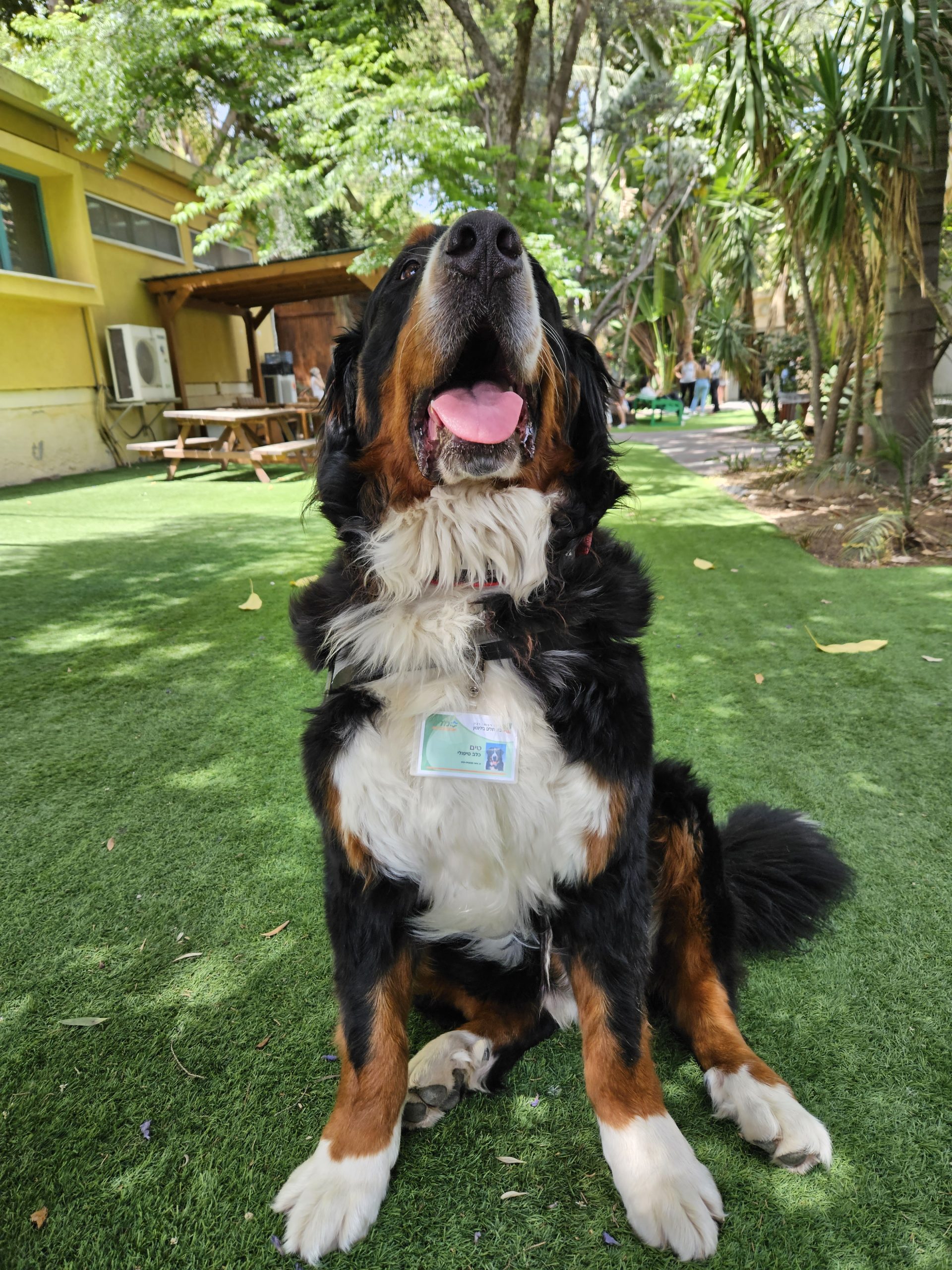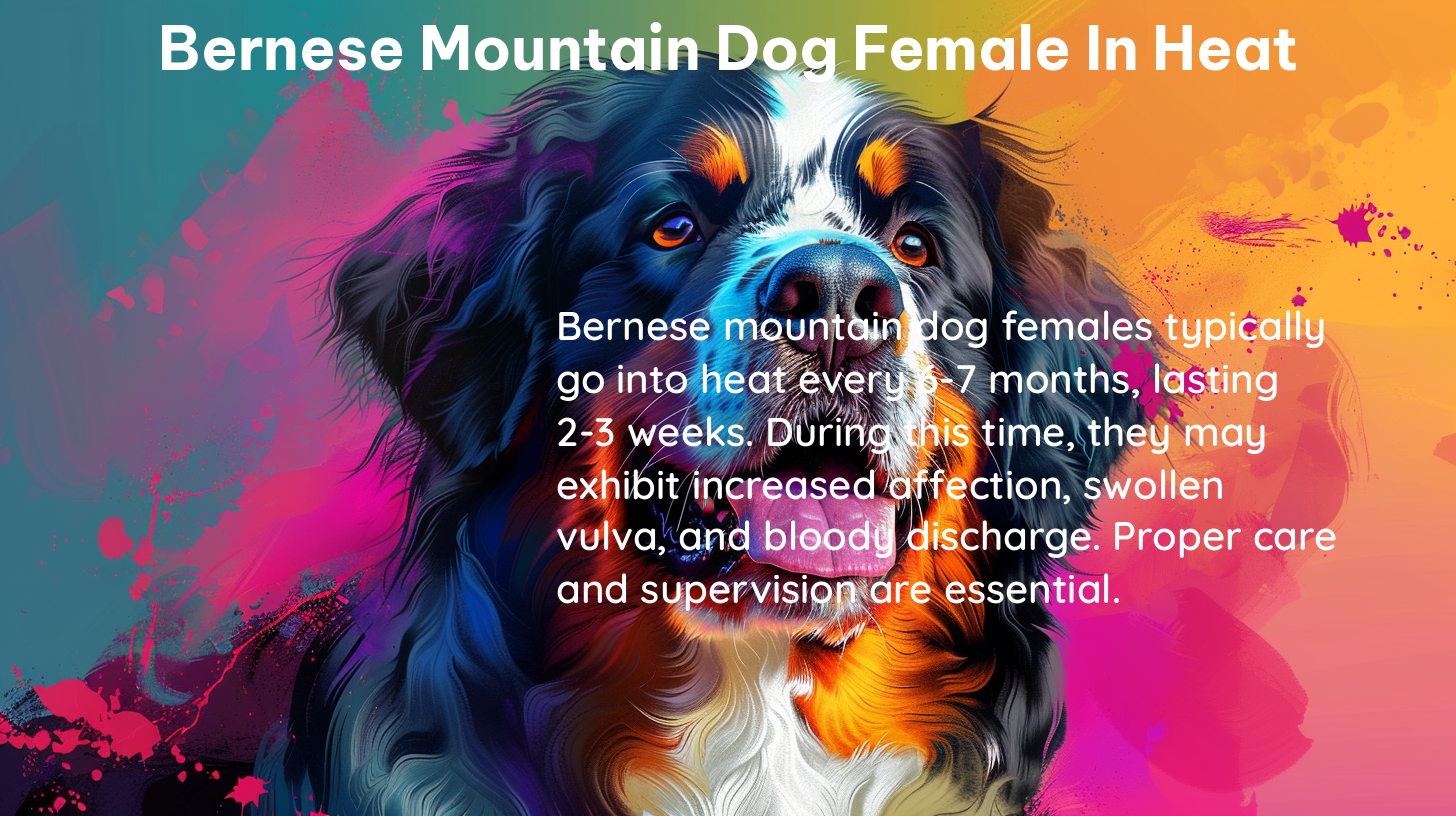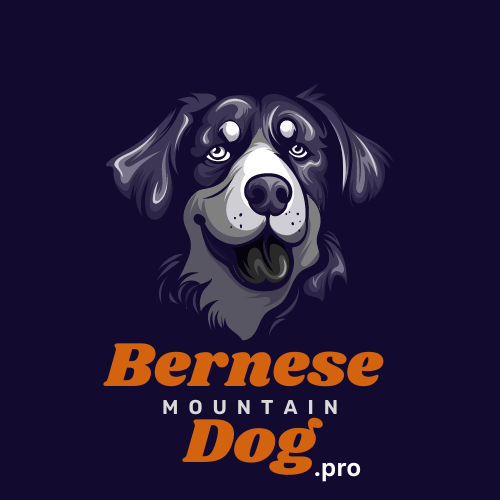A Bernese Mountain Dog female typically goes into heat between 8 and 14 months of age, although it can occur as early as 6 months or as late as 18-24 months. During this period, several symptoms are noticeable, including a swollen vulva, clear or light pink discharge, restlessness, and a strong interest in males.
Symptoms of a Bernese Mountain Dog Female in Heat

- Swollen Vulva: The vulva becomes swollen, indicating the onset of heat.
- Discharge: A clear or light pink discharge is present, which can be minimal in some dogs.
- Restlessness: Females may exhibit restlessness and a strong interest in males.
- Behavioral Changes: Some females may become skittish, nervous, or more clingy before their first heat cycle.
- Increased Urination: Females may urinate more frequently or mark their territory as they get closer to ovulation.
The heat cycle typically lasts around 2-3 weeks, with the most fertile period usually occurring between days 9 and 16. It is crucial to keep the female away from intact males during this time to prevent unwanted breeding.
Managing the Heat Cycle

Caring for a Bernese Mountain Dog female during her heat cycle requires some preparation and vigilance. Here are some tips to help you manage the situation:
Doggy Diapers or Belly Bands
Using doggy diapers or belly bands can help prevent messes and unwanted pregnancies. These products can absorb the discharge and prevent your dog from leaving stains around the house.
Old Towels
Keep plenty of old towels handy to clean up any discharge or bleeding. This will help maintain a clean and comfortable environment for your dog.
Limited Space
Create a restricted area for your dog to roam during the heat cycle, such as a designated room or a crate. This will help prevent accidents and unwanted interactions with other dogs.
Supervision
Always supervise your dog when she is outside to prevent interactions with intact males. This is crucial to prevent unwanted breeding and ensure your dog’s safety.
Health Considerations
While the heat cycle is a natural process, it can also pose some health risks for your Bernese Mountain Dog female. It’s essential to be aware of these potential issues and take appropriate measures to address them.
Pyometra
Pyometra is a life-threatening condition that can occur after a heat cycle. Symptoms may include excessive licking, discharge, and behavioral changes. If you notice any of these signs, it’s crucial to seek immediate veterinary attention.
Neutering
If you do not plan to breed your Bernese Mountain Dog female, consider neutering her between 6-8 months of age. This can help prevent the risk of pyometra and other reproductive issues.
Additional Tips
- Monitor Behavior: Be prepared for mood swings and changes in behavior during the heat cycle. Your dog may become more clingy, anxious, or irritable.
- Keep Your Dog Safe: Ensure your dog is always supervised and kept away from intact males to prevent unwanted breeding.
By understanding the symptoms, managing the heat cycle, and being aware of potential health concerns, you can help ensure the well-being of your Bernese Mountain Dog female during this important time.
References:
– https://www.justanswer.com/dog-health/g1u2q-12-5-month-old-female-bernese-mountain-dog.html
– http://www.bmdinfo.org/bernerpedia/Bernese_Mountain_Dog_Puppy_Growth.php
– https://www.waldershelf.com/seasons-and-neutering
– https://www.hepper.com/when-do-bernese-mountain-dogs-go-into-heat/
– https://www.reddit.com/r/bernesemountaindogs/comments/1608cic/any_advice_on_berners_heat_cycle_ours_is_10/

Sarah Johnson
Sarah Johnson is a devoted Bernese Mountain Dog enthusiast and regular contributor to Bernese Mountain Dog Pro. With over a decade of experience in raising and training Berners, Sarah brings practical knowledge and passion to her writing. Sarah lives in Colorado with her two Berners, Max and Bella.